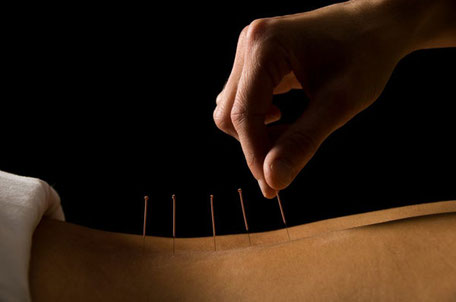What is acupuncture and how does it work?
Traditional Chinese medicine believes that there is an invincible life-giving force that fills and animates the human body which is called ‘Qi’ (Life Force). Only when Qi is flowing well can a person experience good health, mentally as well as physically. When Qi flows at low levels or becomes blocked, it results as a result.
Acupuncture functions by briefly and temporarily inserting very fine needles into the skin at specific points. Like traffic lights on a busy street, the needles stimulate and regulate the flow of energy. Multifaceted challenges in our modern society. In this system, our physical, emotional and mental aspects are seen as interdependent.
Watch this great video done by RMIT University to better understand how acupuncture works:
The styles of acupuncture that I use
Under acupuncture, there are many different practices and styles. I studied acupuncture with Master Chen Yan, 9th generation teacher of the official Master Tung Magical Acupuncture lineage. The “magic” of Master Tung’s acupuncture is in its simplicity and efficiency, and it is renowned in Taiwan, mainland China, as well as internationally for this reason.
In addition, I also studied acupuncture of the navel with Master Chen Yan, based on the I-Ching, one of the most ancient classics in Chinese literature and philosophy. Using very fine needles, both techniques connect with and guide Qi in the body, activate the power of self-healing and lead Qi to where it is needed.

In acupuncture, through the needles the therapist interacts with the client, and energy with the body. In China it is said that the Qi (life force) follows Yi (intention). Therefore, in the classic way of practicing acupuncture, the intention, clarity and concentration of the acupuncturist are known to be as important as the technical aspects for successful treatment.
Years of meditation, energy healing studies and Tai Chi practice have proven a solid foundation for my acupuncture treatments in this regard.
What conditions may benefit from acupuncture?
Nowadays acupuncture is widely used to treat many diseases, acute as well as chronic, physical as well as emotional. There are some examples where acupuncture may help:
- pain & injuries
- back, shoulder, neck pain
- tennis elbow
- knee problems
- emotional challenges & stress
- depression
- burn out
- anxiety
- sleep disorders
- digestive disorders
- women’s / men’s health
- natural pregnancy
- menopause
- menstruation disorders
- incontinence
- impotence
Other healthcare challenges in modern society:
- diabetes
- gout
- chemotherapy support
The World Health Organisation (WHO) has also published a list of diseases or disorders for which acupuncture therapy has been tested in clinical trials and proven effective.
Free initial consultation (30 minutes)
If you have a particular challenge and are not sure if acupuncture could be helpful or not, you are welcome to make a 30 minutes free of charge consultation appointment and discuss with me.
